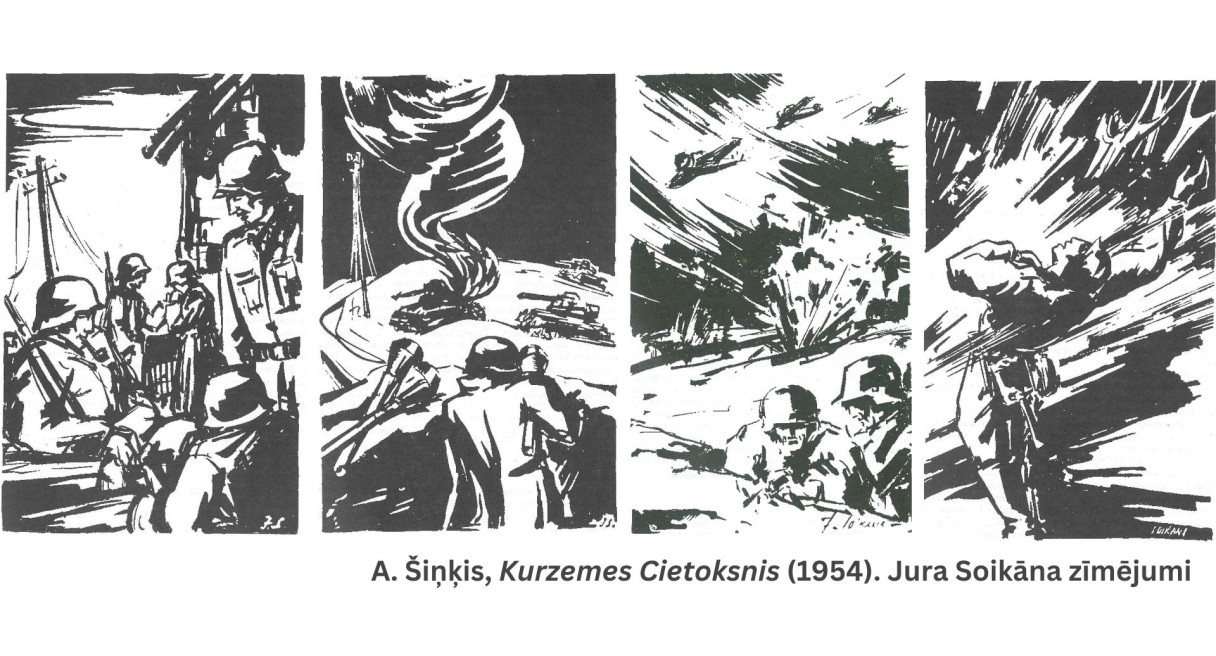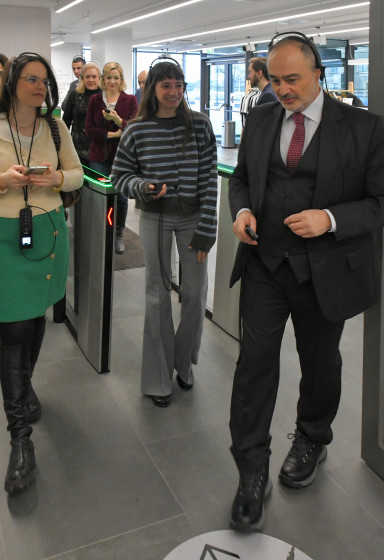Donate to Museum
Each donation helps to ensure the Museum's activities, allowing it to function and provide information for people from all over the world.
The Museum is grateful to each donor and invites everyone to contribute.
1944 Christmas Battles in Kurzeme

During the Second World War, from 23 to 31 December 1944, some of the bloodiest and most tragic battles on Latvian territory took place and were named the Christmas battles. Latvian legionnaires of the German forces were defending a 10 km wide part of the front between Džūkste and Lestene. These were the heaviest battles during the existence of the Kurzeme fortress. The goal of the Red Army was to break through the positions held by the Latvian soldiers and to move in the direction of Ventspils.
The Red Army used its usual tactics – it drove its soldiers into mass attacks, suffering very heavy losses. The legionnaires' units were often surrounded in separate country houses, which they defended until they could retreat, move into counterattack, and regain lost positions. Special heroism was shown by soldiers of the 19th Weapons SS Grenadier Division (Latvian No. 2) Fusilier Battalion, commanded by Captain Ernests Laumanis, and soldiers of the 44th Weapons Grenadier 6th Company of Captain Miervaldis Ādamsons. The artillerymen of the 19th Division also played a significant role because their accurate fire frequently prevented a break in the front.
During the Christmas battles, one of the most tragic moments occurred in the history of Latvia and the Latvian people. The battles of the 19th Division near Džūkste were also against the 130th Latvian Riflemen Corps of the Red Army that consisted mostly of illegally mobilized residents of already Soviet occupied Vidzeme and Latgale. Thus, Latvian soldiers were forced to wage war against each other in the armies of both occupying powers.
As a result of the Christmas battles, the front line changed very little – the Soviet side managed to gain only a few square kilometers. It is believed that about 1500 Latvian legionnaires died in the Christmas battles, but the number wounded was three times higher. The fighting in the Kurzeme fortress continued until May 1945, when the German army group "Kurzeme" surrendered due to German capitulation.
In anticipation of Christmas, we invite you to listen to video recordings in which former legionnaires remember their participation in the Christmas battles. The consequences of the battles were also experienced by doctors and nurses working in lazarettes and caring for the wounded.




